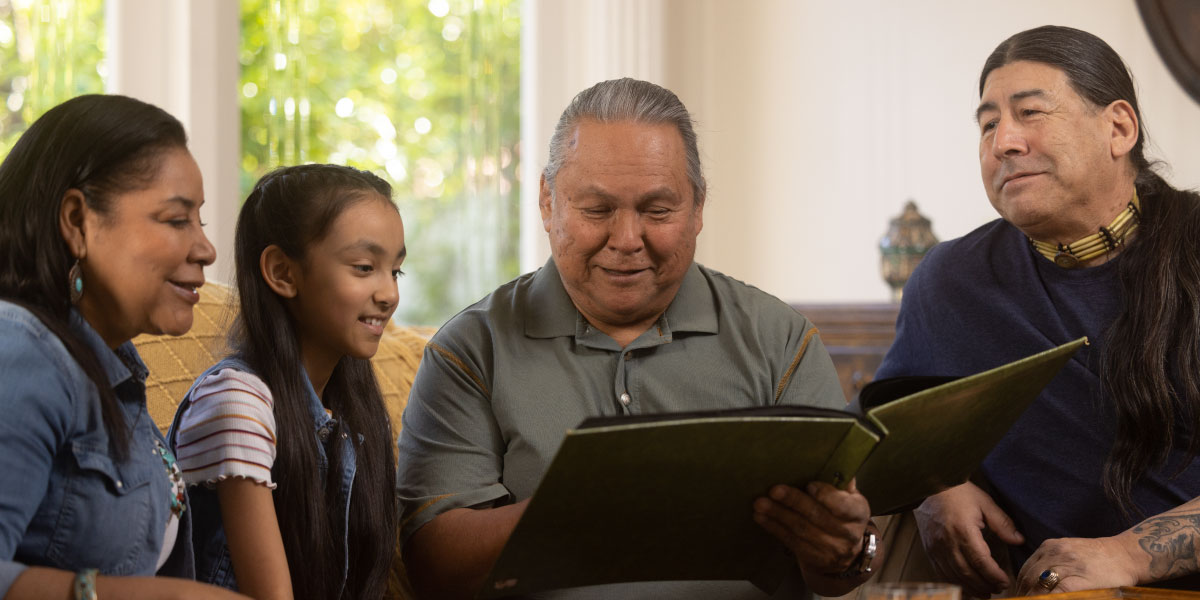Alzheimer's and Public Health Action in Arizona
Alzheimer’s disease is a growing public health crisis in Arizona, and the impact of Alzheimer’s is projected to rise. A comprehensive public health approach is essential to improve community health, support the well-being of those living with cognitive decline and their families, and reduce the risk of dementia throughout communities. The most recent data show:
152,000
people aged 65 and older are living with Alzheimer’s in Arizona.
8.9% of people
aged 45 and older have subjective cognitive decline in Arizona.
240,000
family caregivers provide essential support to people living with dementia in Arizona.
377 million
hours of unpaid care are provided by dementia caregivers in Arizona.
$9.5 billion
is the value of unpaid care provided in Arizona.
$591 million
is the cost of Alzheimer’s to the state Medicaid program.
Fact sheets on Alzheimer's and dementia in Arizona
View and download state-specific fact sheets for the latest data on each topic:
Learn more about how these data are collected in the annual Alzheimer’s Disease Facts and Figures report and the Behavioral Risk Factor Surveillance System (BRFSS).
Public health progress in Arizona
State, local, territorial and tribal health departments are key partners in implementing a robust public health response to dementia. The Arizona Department of Health Services (ADHS) is improving brain health throughout the state.
The ADHS is partnering with state and local partners to develop trainings on Alzheimer’s and other dementia awareness and risk reduction for clinicians, Community Health Workers (CHWs), and other health professionals. ADHS provides technical assistance and support for counties participating in the Health in Arizona Policy Initiative (HAPI) Program, which focuses on innovative solutions to address the four leading causes of chronic disease death.
Additionally, the Maricopa County Department of Public Health, a BOLD program awardee and the third largest health jurisdiction in the country, is improving brain health on a local level. They are promoting a Using Data Webinar Series on using Alzheimer’s and other dementia data to support early detection and risk reduction efforts and better understand the disparities that individuals living with dementia and their caregivers experience. To enhance data accuracy and expand collection efforts, the webinar aims to encourage increased involvement from local healthcare and community and public health professionals. Learn about the Maricopa County Community Health Needs Assessment (CHNA) data collection.
Working across the levels of prevention
Across the levels of prevention, the Arizona Department of Health Services and Maricopa County Department of Public Health implement public health programs and interventions to address Alzheimer's through:
-
Risk reduction: Launched a Healthy Brain campaign to educate on the impacts that chronic diseases and chronic disease management have on brain health and cognitive decline. Formed the Maricopa County Healthy Brain Initiative Coalition with over 40 partners, prioritizing strategies for the Arizona Alzheimer's Disease and Related Dementia State Plan using the HBI Road Map.
-
Early detection and diagnosis: Collaborated with the Alzheimer’s Association on a statewide Dementia Awareness Campaign focused on brain health, early detection and stigma reduction, particularly in rural and underserved communities. Hosted an education session for BOLD coalition members highlighting Banner Health Alzheimer’s Institute’s ECHO Program to increase awareness and promote greater clinical capacity for dementia care.
-
Dementia caregiving: Host an annual Caregiver Summit for caregiver education, peer networking, promoting sustainable caregiving and community resource awareness, and providing respite care. Partner with state and local partners to launch a centralized online resource hub for caregivers.
Developing public health infrastructure and expanding capacity
Public health programs are critical to helping people stay cognitively healthy throughout life. The Maricopa County Department of Public Health in Arizona is developing infrastructure and expanding capacity through these programs:
- BOLD Program
- Risk Reduction Learning Collaboratives
Resources for public health professionals
Tools from the Alzheimer's Association provide public health strategies that public health professionals can use to improve brain health and support caregivers and people living with dementia in your community.
Contact us
Public health professionals can contact the Alzheimer's Association public health team for questions and support.
Learn MoreGet involved
Anyone can join the fight against Alzheimer's by getting involved with your local chapter.
Find Your Chapter





